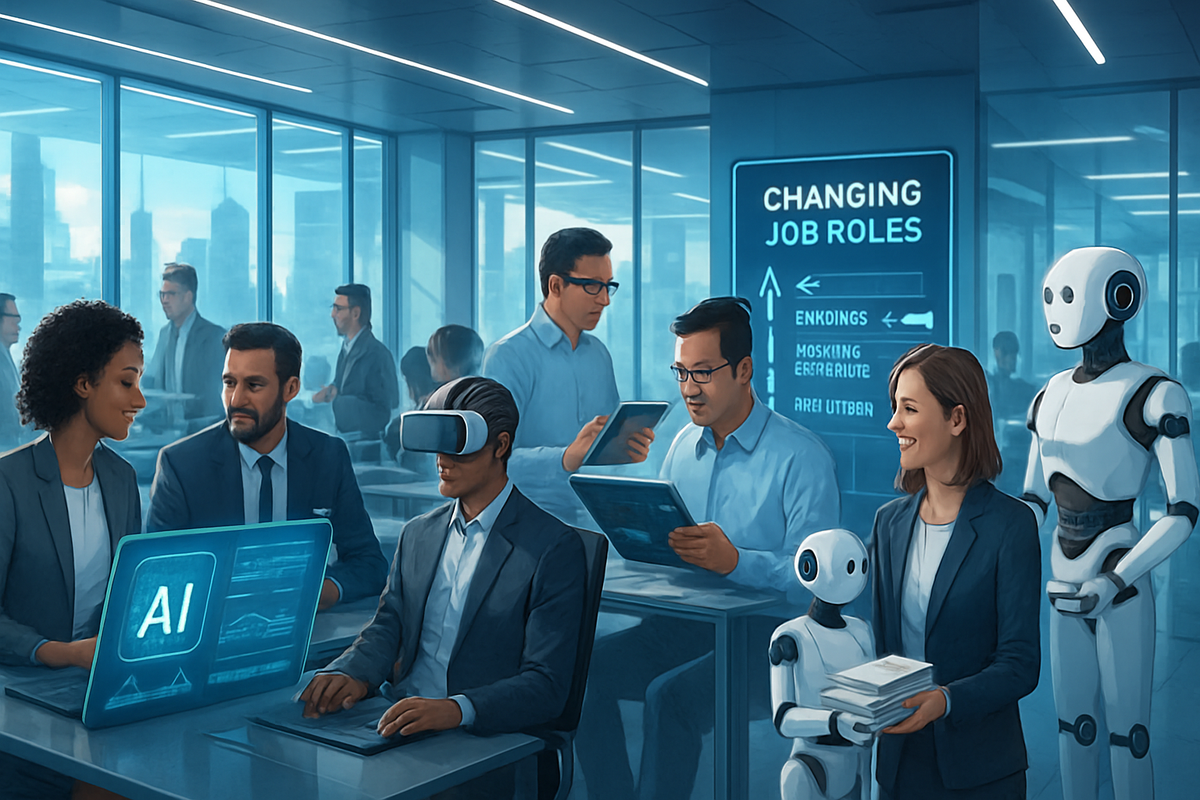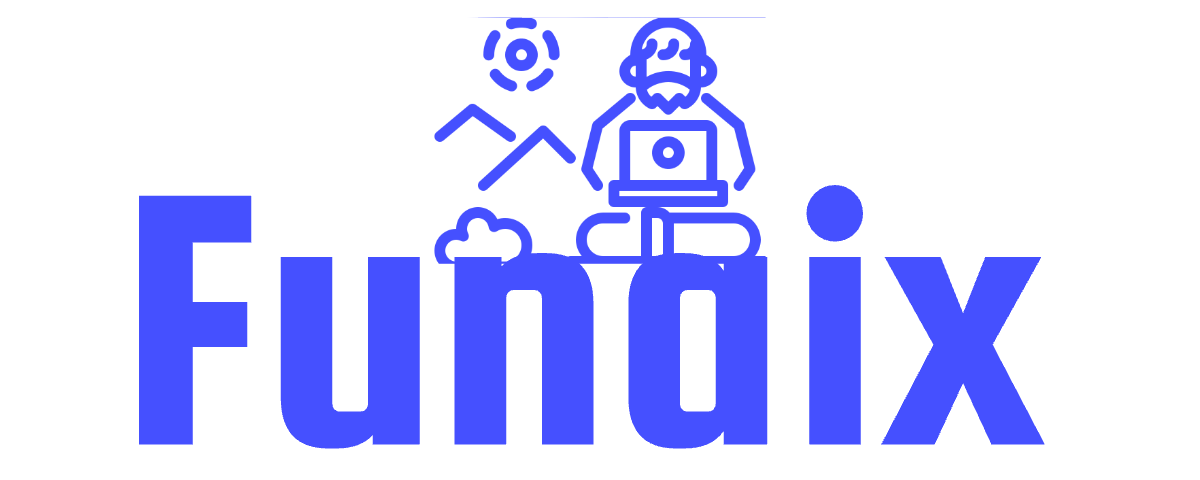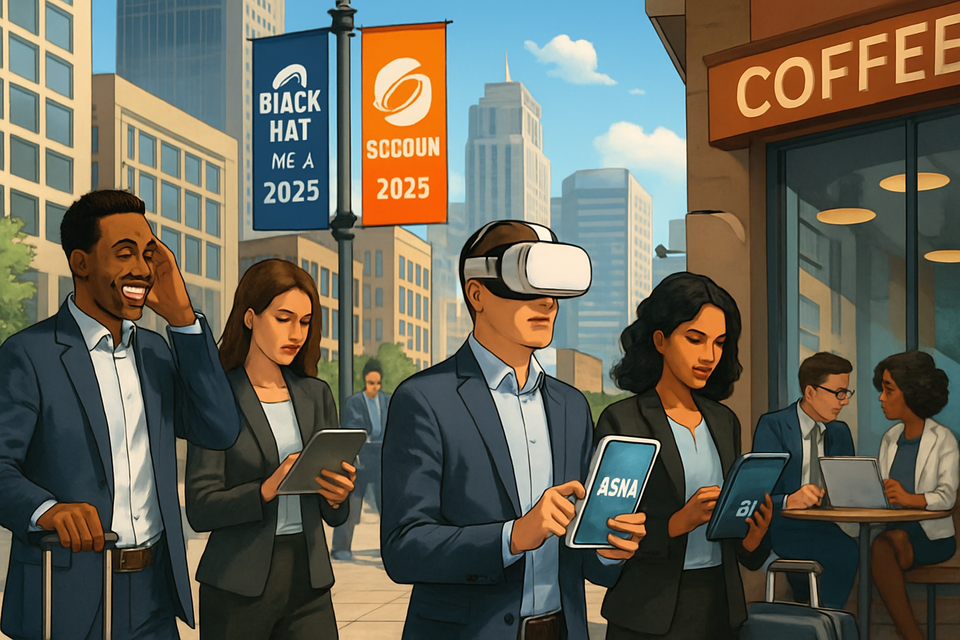The AI Job Revolution: How Artificial Intelligence Is Creating (and Destroying) Careers in 2025
AI is shaping careers at an unprecedented pace—are you adapting or risking obsolescence? Embrace lifelong learning and AI partnerships to thrive in this dynamic landscape. Start by transforming, not just surviving, in the era of AI-driven change.

“The future of work isn’t written in binary — it’s being rewritten, byte by byte, by AI. Are you ready to reboot your career?”
Welcome to the Great AI Job Shakeup
It’s August 2025, and the global workforce is experiencing a plot twist worthy of a Black Mirror episode — only this time, you’re the main character. Artificial Intelligence (AI) is no longer just automating spreadsheets or spitting out chat responses; it’s actively creating and destroying jobs at a pace that’s equal parts exhilarating and terrifying.
“AI is not a job killer, but a job transformer. The question is: will you let it transform you?”
— Priya Mehta, Global Head of Talent Strategy, QuantumWorks HR
What’s Really Happening? Data, Not Drama
Forget the hype. Here’s what the numbers say:
- 85 million jobs globally will disappear by 2030 due to automation and AI (World Economic Forum, 2025).
- 97 million new roles will emerge, many of which didn’t exist five years ago.
- In 2025 alone, 1 in 5 workers has already seen their job description change due to AI.
- Top sectors at risk: Manufacturing, transport, retail, customer service, basic accounting, and even some white-collar admin roles.
- Top sectors hiring: AI/ML engineering, data science, cybersecurity, prompt engineering, AI ethics, digital health, green tech, and creative AI content creation.
(Sources: WEF, McKinsey Global Institute, LinkedIn Economic Graph, 2025)
Jobs on the Chopping Block (and Jobs on the Rise)
Most At-Risk Roles
- Data entry clerks
- Telemarketers & call center reps
- Retail cashiers
- Routine legal assistants
- Basic accounting/bookkeeping
- Simple content writers
Emerging & Hot AI-Driven Careers
- AI prompt engineers
- Data ethicists & AI policy specialists
- AI trainer & explainability analyst
- Human-AI collaboration designers
- Machine learning operations (MLOps) managers
- Personalized health & wellness data coaches
- Virtual experience creators
Exclusive Insights from the Front Lines
“We’re seeing a huge demand for ‘hybrid’ professionals — people who understand both tech and people. The best-paid roles in 2025 blend AI literacy with soft skills like communication, empathy, and creativity.”
— Dr. Linh Tran, AI Workforce Futurist & Lead Analyst, TalentPulse
According to Elena Rossi, Chief HR Officer at DataFutures Group, “AI isn’t just replacing jobs — it’s automating the boring stuff and freeing humans for higher-value work. But the catch? You need to learn how to work with AI, not against it.”
How to Know If Your Job Is at Risk (and What to Do Next)
- Is your work repetitive or rules-based? (If yes, automate and upskill!)
- Does your job require empathy, negotiation, complex judgment, or hands-on creativity? (If yes, you’re safer — for now.)
- Does your company invest in AI or digital transformation? (If not, update your resume and start networking!)
Want a personalized assessment? Subscribe to Funaix for free to join our community — only subscribers can access in-depth job risk tools, join the discussion, and comment on our articles!
Adapting (Without Losing Your Mind or Your Paycheck)
- Embrace lifelong learning. Platforms like Coursera, Udemy, and LinkedIn Learning are bursting with AI literacy and upskilling courses — and many are free or low-cost.
- Develop “AI plus” skills. Combine your domain expertise with AI know-how. (Finance + AI, Marketing + ML, HR + analytics, etc.)
- Network like your job depends on it. (Because it does.) Connect with communities, mentors, and recruiters in your evolving industry.
- Build a personal brand online. Share your AI learning journey. Recruiters love a curious mind.
- Don’t fear the bots — partner with them. The best employees in 2025 are those who know when to delegate to AI, and when to step in as a human.
What Every Organization Needs to Know (Or Ignore at Their Peril)
- Upskill, don’t downsize. The most resilient companies are investing in upskilling programs, not pink slips.
- Redesign jobs, not just workflows. AI is a tool, not a strategy. Human potential is your competitive edge.
- Prioritize transparency. Communicate AI plans openly. Employees fear what they don’t understand.
- Hire for adaptability. The best hires in 2025 are agile learners, not just technical wizards.
The Bottom Line: Don’t Just Survive. Thrive.
AI is not destiny. It’s a tool. The future belongs to those who are curious, adaptable, and willing to learn. Whether you’re a recent grad, a seasoned leader, or somewhere in between, the next chapter is yours to write — or code, or prompt-engineer, or design.
"The best way to predict the future of work is to help create it. Start today."
Want more exclusive insights, practical guides, and access to our smart AI career community? Subscribe to Funaix for free — only subscribers can comment and join the conversation. It’s free (for now), and yes, you’re invited.
Published on August 6, 2025 — For updates, discussion, and more, subscribe now.




